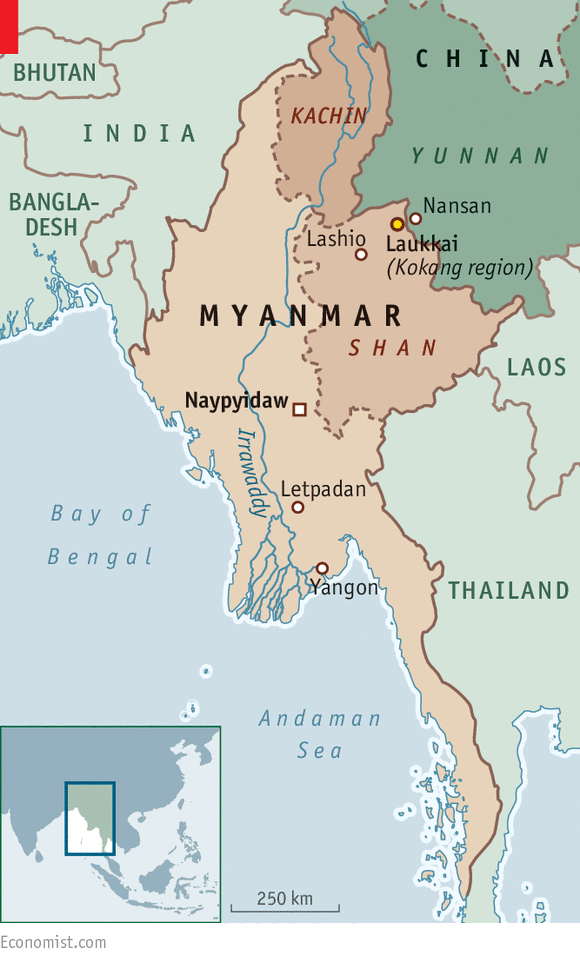Chinese netizens can be like a pack of rabid animals that will give any hardcore conservative fire-breather a good run for their money.
Yes, Chinese territory was bombed, and it looks like civilians were killed.
But those seems to be accidents, and China has done the right thing by proceeding with normal channels and responding proportionately.
China's initial response was to the first incident of its kind which only resulted in property damage, so it was reasonable to give the Myamar government the benefit of the doubt and take their word for the explanation of the incident.
However, given that the bombing attack that killed the civilians was at least the second of its kind, and the fact that unlike the first strike, Chinese civilians were killed, a tougher response should now be warranted.
I would like to know more details about the location of the strike before passing broader judgement on the appropriateness of the response for the PLA.
The PLA should have been on heightened alert before even the first cross broader fire incidents because of the conflict in Mynmar. I also suspect there have been some misreporting of the incidents, either by accident or by design.
I seriously doubt the Mynmar Air Force was allowed to bomb a village 100km inside of China. It could be a mashing up of multiple events. Maybe a flight did stray 100km into Chinese airspace once, but another likely conducted the strike, at a seperate time and place.
I believe intially the PLA didn't do anything silly like launch a SAM because their SOP has never been to shoot first and ask questions later. The PLA likely closely monitored the developments, but didn't take lethal action because it was awaiting instructions from Chinese leadership.
They did seem to have scrambled fighters to intercept and turn back the intruder, which was again standard and reasonable. Given that Mynmar has a land boarder with China, their jets can fly right up to the Chinese boarder and still be operating normally, so the 100km incursion before intercept doesn't really tell us anything about the readiness state of the PLAAF given the speed fighters typically fly at.
That seems reasonable given the fact the Mynmar and China are supposed to be on good diplomatic terms.
One of the main reasons I want to know where the second fatal bombing occurred was to see if it was far from the boarder.
If it was a village right on the boarder, them there won't have been much anyone military in the world could have done about it without an over-reaction of hilarious proportions like deploying an Iron Dome-like air defence asset.
Iron Dome might be appropriate for a country like Israel, but for China to deploy a similar system (even if they had it, which they don't currently) on its Mynmar boarder would be like the US deploying Iron Dome on its Mexican boarder.
However, given the fact that the second strike killed civilians, and was a second strike, the 'accident' reason given by Mynmar would hold a hell of a lot less water for China now.
It is not in the Chinese people's or government's nature to publicly rant and rave their thoughts and opinions, so we get the normal proforma diplomatic responses from the Chinese foreign office and official media, but privately, behind closed doors, I believe Mynmar would be on its final warning that any further incursions into Chinese airspace, for whatever reason, will not only not be tolerated, but also trigger a strong if not lethal Chinese military response.
I would expect PLA air defense units to be deployed closer to the boarder, and also given revised ROEs and greater discretionary powers to launch without needing higher authorisation.
I would expect any Mynmar military air assets to cross into Chinese territory from this point on to get a radar lock warning from SAM sites and instructions from Chinese air traffic control to land at a Chinese military air base where the pilot and plane would be taken into cusdoy pending an investigation, and that failure to follow instructions to the letter would result in immediate engagement and destruction by Chinese air defences.
This second strike would have caused China's leaders (both civilian and military) enormous embarrassment and annoyance, and no further repetitions of it would be tolerated.

